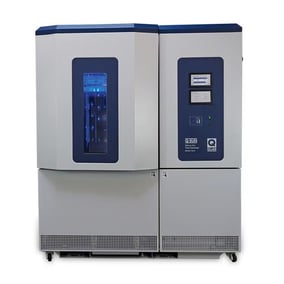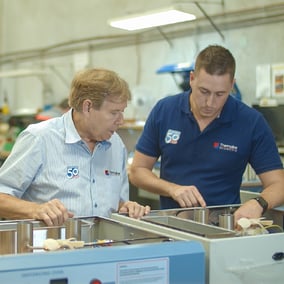When it comes to the storage of breast milk in hospital environments, maintaining the milk's quality and safety is paramount. For mothers who express milk due to various reasons—whether their baby is premature, sick, or they are returning to work—proper storage is essential. Breast milk is a precious resource, offering unparalleled nutrition and immune protection, particularly for vulnerable infants in neonatal care units. Thus, hospitals need reliable, precise refrigeration solutions to meet stringent storage requirements.
Key Guidelines for Breast Milk Storage
 The storage of breast milk must follow specific guidelines to preserve its nutrients and prevent bacterial contamination. Here are the essential practices based on the Healthdirect Australia guidelines and local health district recommendations:
The storage of breast milk must follow specific guidelines to preserve its nutrients and prevent bacterial contamination. Here are the essential practices based on the Healthdirect Australia guidelines and local health district recommendations:
-
Temperature Control:
- Freshly expressed breast milk should be stored at room temperature (≤26°C) for no more than 6-8 hours if refrigeration is unavailable.
- Ideally, breast milk should be refrigerated at 5°C or lower, where it can be safely stored for up to 72 hours.
- For long-term storage, freezing is necessary. In a standard freezer section with a separate door, breast milk can be stored for up to 3 months at -18°C. In a deep freeze at -20°C, it can be stored for up to 6-12 months.
-
Labelling and Handling:
- Each container of expressed breast milk should be labelled with the mother's name, date, and time of expression.
- Thawed breast milk must be used within 24 hours if kept in a refrigerator and should never be refrozen.
-
Hygiene:
- All equipment used in expressing and storing breast milk must be thoroughly sterilized. This includes bottles, teats, and breast pump parts, ensuring they are free from bacteria and safe for use.
Why Thermoline Pharmacy Fridges Are the Best Choice
Given these stringent guidelines, the Thermoline Pharmacy Fridge Range stands out as the ideal solution for hospitals needing to store breast milk safely. Here’s why:
-
Precise Temperature Control: Thermoline pharmacy fridges are engineered to maintain consistent temperatures, ensuring breast milk is stored within the recommended range of 2-5°C. This precision is crucial for preserving the milk's nutrients and preventing bacterial growth.
-
Advanced Monitoring Systems: These fridges come equipped with advanced monitoring and alarm systems that alert staff if the temperature deviates from the set range. This feature is particularly vital in busy hospital environments where maintaining ideal storage conditions around the clock is necessary.
-
Spacious and Versatile: Designed with ample storage capacity, Thermoline pharmacy fridges can accommodate a large number of milk containers, making them ideal for use in maternity wards and neonatal units. Their adjustable shelving also allows for easy organization and access.
-
Compliance with Health Standards: Thermoline’s products comply with the stringent standards required for medical-grade refrigeration, ensuring that hospitals meet all health guidelines for breast milk storage.
-
Energy Efficiency: In addition to their advanced features, Thermoline fridges are energy efficient, helping hospitals reduce their operational costs while maintaining the highest storage standards.
Conclusion

Storing breast milk in a hospital environment demands the utmost care and adherence to strict guidelines. The Thermoline Pharmacy Fridge Range provides the perfect solution, offering reliable, precise, and compliant refrigeration that ensures breast milk remains safe and nutritious for hospital use. Investing in these fridges is not just about compliance; it's about ensuring the best possible care for infants who depend on breast milk as their primary source of nourishment.






